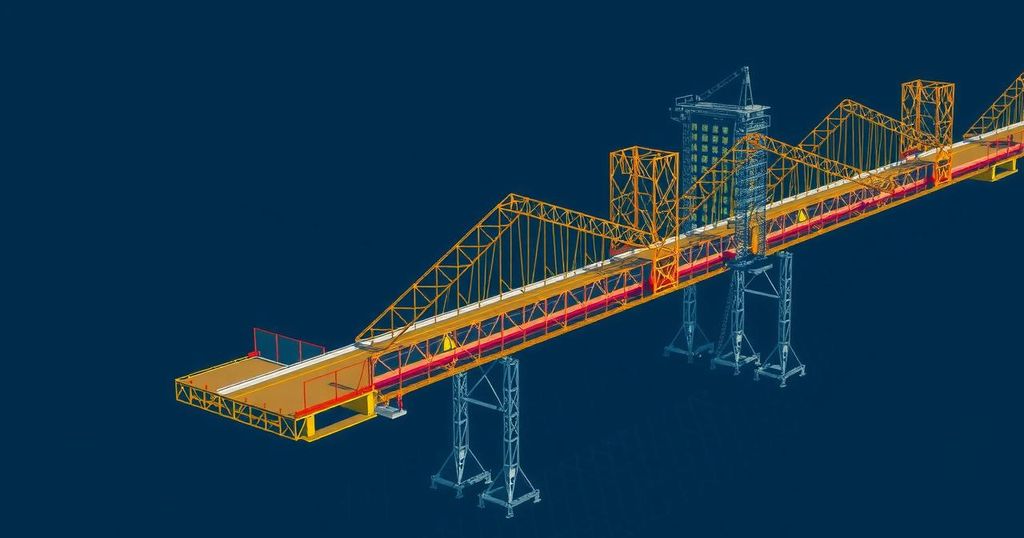Resilience at Scale: Advancing Climate-Resilient Infrastructure Systems

The article discusses the urgent need for resilient infrastructure amidst escalating climate change impacts. In 2023, records were set for extreme weather events, highlighting the necessity for a paradigm shift in infrastructure development. The ‘Resilience at Scale’ report emphasizes addressing entire systems rather than individual assets, aiming for collaborative approaches to enhance global resilience against climate volatility.
In light of increasing climate unpredictability, particularly documented in 2023—the hottest year on record—there is an urgent need for innovative solutions to enhance climate resilience. Global temperatures have consistently exceeded 1.5°C this past year, resulting in devastating impacts such as extreme storms and flooding that pose existential threats not only to the most vulnerable regions but to global stability. Cyclone Freddy’s catastrophic repercussions, alongside 28 major weather-related disasters in the United States, underscore the critical necessity for urgent interventions. Focusing on critical infrastructure as a foundational element of economic development is paramount. The U.S. Government (USG) collaborates with low- and middle-income countries to create resilient infrastructures that can withstand the strains of climate change while fostering growth and stability. The ‘Resilience at Scale’ report, published by the Millennium Challenge Corporation (MCC) and the U.S. Agency for International Development (USAID), advocates for a paradigm shift from individual asset development to focusing on resilient infrastructure systems that ensure sustained service delivery despite climate challenges. Furthermore, the report emphasizes a holistic approach to resilience, proposing that efficacy emerges from viewing infrastructure as interconnected systems rather than isolated components. This strategy promotes smarter investment outcomes, ultimately providing enhanced services and supporting broader development goals such as economic inclusion, job creation, and clean energy access. Implementation of such an approach is encapsulated within the President’s Emergency Plan for Adaptation and Resilience (PREPARE), which consolidates efforts across U.S. governmental agencies to cultivate global climate resilience. By embracing cooperative strategies among agencies like the U.S. Army Corps of Engineers and the National Oceanic and Atmospheric Administration, the USG aims to forge a resilient future through cross-sectoral collaboration and continual learning from practical experience. Stakeholders are invited to contribute to this critical initiative and further discussions on enhancing infrastructure resilience at the upcoming COP29 event in Baku, Azerbaijan. Undoubtedly, climate change poses profound challenges, necessitating urgent action, innovative partnerships, and a strong commitment to implementing resilient infrastructure systems on a global scale.
The article addresses the pressing issue of climate change and its escalating effects, emphasizing the need for resilient infrastructure to mitigate the impact of extreme weather events that are becoming increasingly common. 2023 marked a significant threshold in global warming, and reported weather-related disasters have not only escalated in frequency but also in severity, affecting millions worldwide. The U.S. Government, under the guidance of the ‘Resilience at Scale’ initiative, seeks to address these issues through integrated infrastructure systems that fortify economic development while combating climate vulnerabilities.
In summary, the growing impacts of climate change compel swift and collaborative responses focused on developing resilient infrastructure systems. The initiatives set forth by the U.S. Government, particularly through the ‘Resilience at Scale’ framework, underscore the significance of strategic planning in infrastructure development. By fostering partnerships and employing a systems-level approach, the aim is to enhance resilience, support economic growth, and contribute to a more sustainable global future for the most vulnerable communities.
Original Source: www.mcc.gov







